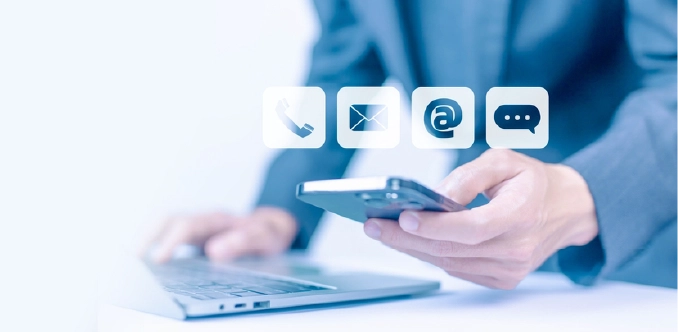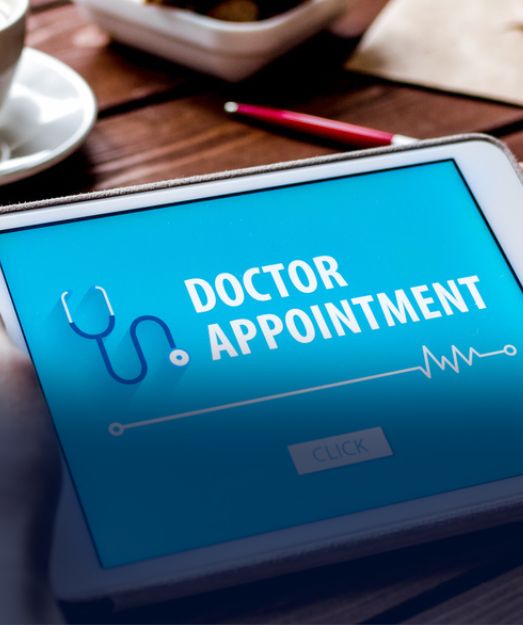
The rapid advancement of mobile app technology has greatly impacted our daily lives. Today, it’s hard to picture life without smartphones. Hospitals and healthcare organizations increasingly rely on mobile healthcare apps to provide quick and efficient services to patients.
Recent studies show that health and fitness mobile apps have been downloaded more than 97,000 times, with 52% of smartphone users accessing health-related information.
More than 15% of people aged 18 to 29 have health apps installed on their smartphones. Developing medical healthcare mobile apps for patients helps improve communication and data management in the healthcare industry.
Why is it necessary for hospitals to have a mobile app?
Easy access to healthcare:
Finding the right medical services can be challenging for people in big cities. In large medical facilities, patients often have to navigate multiple floors before receiving proper care. Developing high-quality medical apps helps make healthcare access more convenient.
Access to medical records:
Accessing patient data in a medical facility can be challenging. With advancements in technology, managing this information has become more efficient, saving time. Staff can now quickly retrieve files from the database as needed.
The Electronic Medical Records (EMR) app enables faster access to medical data, making it useful for both doctors and patients worldwide.
Cloud-based EMR programs let users update records remotely, without needing physical access. Developing mobile healthcare apps gives patients quick access to hospitals, allowing them to schedule appointments anytime. Mobile apps offer many advantages in healthcare.
Long term financial investments:
As healthcare continues to expand, patients are looking for simpler ways to visit facilities. Developing healthcare apps is one of the best ways to enhance access and communication between patients and providers. It is clear that this is a valuable investment for long term health.
Effective management system:
Running a hospital, healthcare center, or clinic is no easy task. However, creating a hospital or medical app offers a cost effective solution helping to greatly improve service quality.
Implementing certain procedures can help reduce costs. Medical mobile apps are an excellent tool for managing all of a facility’s operations. Keeping your facility’s app up-to-date also enhances your reputation with patients.
Automated scheduling:
No one likes waiting in long lines for appointments, especially patients who often experience discomfort during the wait. Scheduling appointments in advance would be a great way to reduce the number of people waiting in lobbies.
In addition to this, hospitals often depend on phone calls or other means to manage appointments and scheduling. The scheduling feature of a medical mobile app offers patients a more effective way to keep track of their appointments. By using the right medical app, patients can avoid waiting in lines.
Streamlined billing:
Hospitals often start developing apps to simplify payment methods. These apps provide an effective way to manage financial transactions remotely.
Many patients prefer using contactless technology for payments. This allows them to settle their bills quickly and easily. It’s also a convenient way to process medical insurance claims without going through a lengthy verification process.
Mobile app developers in the healthcare industry have been focussed on creating quick bill payment processes. These options save time for both patients and healthcare providers.
How does a healthcare mobile app benefit patients?
Increased availability:
With a reliable internet connection and a smartphone, people can easily get help or consult a specialist from anywhere. These telemedicine options are crucial for underserved communities with limited mobility.
Time-saving:
In healthcare, a delay in receiving medical help can be life-threatening. With a mobile app readily available, people can get urgent pre-doctor care quickly, potentially saving crucial minutes that could impact their health or even their lives.
Cost efficiency:
Traveling to the hospital can incur costs for fuel, transportation, food, and more especially if someone has to travel a long distance. For minor issues or routine check-ups, these trips often feel like a waste of money. A hospital app enables people to stay at home and receive the same quality of services.
Hassle-free appointment booking:
When you need to meet with a doctor, a specialized AI chatbot found in most hospital apps makes scheduling appointments easy.
What is the current state of medical mobile apps?
The growing use of smartphones has led the healthcare industry to rethink its marketing strategy. An online survey found that two-thirds of people prefer digital health solutions over traditional methods. Additionally, 79% of respondents expressed a strong interest in wearable devices that track and manage metrics like heart rate and calories.
Important Takeaway:
Mobile health applications are helpful for people trying to locate specific departments or staff members within a hospital. They mainly offer quick access whenever needed, allowing patients to easily reach healthcare services when they require them.



















